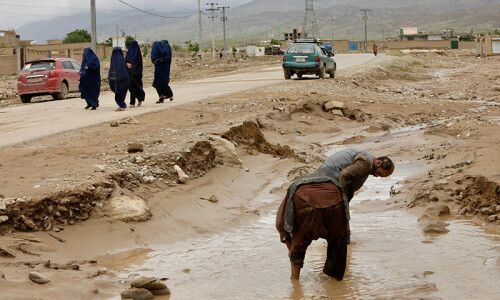
I BELONG to the generation that had migrated to Pakistan; some perched on the shoulders of their fathers, some in the arms of their mothers, not knowing why they were leaving their homes and what actually was the ultimate destination.
In my generation’s memory, the death of Quaid-i-Azam Mohammad Ali Jinnah and the assassination of prime minister Liaquat Ali Khan are embedded as the first shocks early in our lives. Soon, events started happening at a rapid pace, leaving people with a clear idea that something was wrong somewhere, indicating that some hidden hands were working behind the scenes.
In contrast, leadership in the neighbouring country quietly and methodically got down to the task of having a constitution and then implementing it effectively. India successfully formulated and implemented the Zamindari Abolition Act of 1951, successfully carving out a positive image for itself.
No such effort was made in Pakistan, because all the relevant stakeholders had successfully established their presence in the corridors of power. Many among those who had migrated post-partition started recalling the prophetic words of Maulana Abul Kalam Azad. “You have no idea [as to] what kind of people you are going to join in Pakistan,” he had told those who were planning to undertake the journey in 1947.
Right from the beginning, it was evident that leaders in West Pakistan were not willing to let the people of East Pakistan have a fair and equal share in the affairs of the new state. The people of East Pakistan agreed to the so-called parity under the One Unit scheme just to keep the country united. Yet, they were pushed to the wall in 1971, and the rest is history.
My generation has witnessed only a turbulent Pakistan. This turmoil is well summarised by Daniel Seth Markey in his book, No Exit from Pakistan: America’s Tortured Relationship with Islamabad, in which he has mentioned that “it has been a policy of Washington … to keep Pakistan under turmoil”, keeping in view its strategic location vis-à-vis China, Iran, Afghanistan and Central Asia. This assertion by Markey leads one to believe that Pakistan
will never have any escape from Washington’s policies and may never see stability even in the years to come.
Abid Mahmud Ansari
Islamabad
Published in Dawn, June 26th, 2023












































Dear visitor, the comments section is undergoing an overhaul and will return soon.